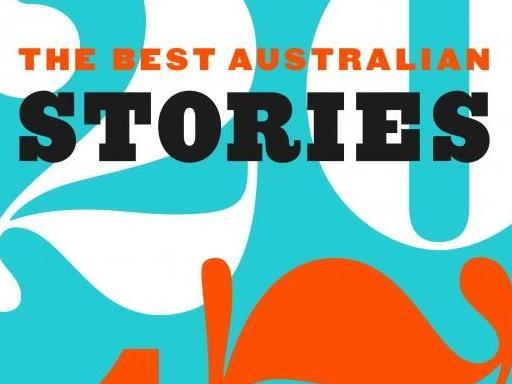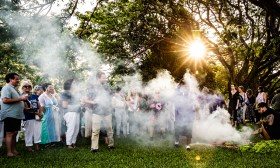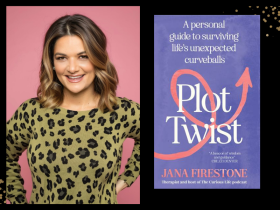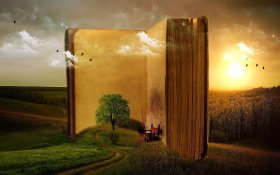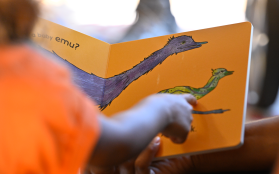Book cover art: Best Australian Stories via Black inc.
The unifying quality that links each story in The Best Australian Stories 2017 is that they all leave the reader with a ‘haunting’, says editor Maxine Beneba Clarke. The perfect balance of character, material, structure and prose results in a ‘deep shifting of self, precipitated by impossibly few words.’ Gleaned from a range of literary journals, newspapers and anthologies published throughout the year, the stories chosen for this anthology not only draw the reader in, but also say something about Australia.
Short stories are a polarising art form because they can demand a lot of the reader; the best show and do not tell. Because of their brevity, short stories often demand prior knowledge to access their wit. Tony Birch’s Sissy alludes to the Stolen Generation, when a child is promised a holiday with a well-off Catholic family. In By Proxy by Cassie Hamer, a young woman travels to Australia to begin her married life with a stranger, just as an estimated 12,000 Italian women did between 1945 and 1976, though this fact is not explicitly stated. The best short stories are rich in symbolism and metaphor. If crafted well, they can be appreciated at face value, but the experience is truly heightened and made ‘haunting’ when the pennies start to drop. All of the stories in this collection are rich in that sense, encouraging the reader to identify the clues and delve deeper. Thus, this is a volume that is best savoured in small bites, so that each piece can settle and truly satisfy.
Familial relationships are front and centre in this anthology. Existing strain between brothers is frayed by a split second in Josephine Rowe’s Glisk, a politician is revealed to have ridden the waves of her father’s influence in the satirical Polly Stepford (1932-1997) by Ryan O’Neill, and a young boy unearths the truth about his neighbours’ late-night carrying-on in John Kinsella’s The Telephone. What quickly emerges through reading these stories is how complicated our closest relationships are: a migrant boy’s connection with his grandmother mirrors that with his former home in Elizabeth Flux’s One’s Company, a mother is unsettled by how quickly she adapts to living with a fully-grown son in Miracles by Jennifer Mills, and a boy withdraws from his father in Madeline Bailey’s The Encyclopaedia of Wild Things. The importance of connection is a recurring theme, which seems no coincidence given how increasingly easy it has become to disengage from and dismiss those around us.
If someone was not familiar with Australia and its people, this would not necessarily be the anthology to inspire a visit, though it does acknowledge our dimensions, humanising a country that has exported itself as a tangle of kangaroos, laid-back attitudes, beach days and wide, open spaces. The overall impression granted by this anthology seems to be that we are a jaded people dealing with ugly, sad things. Whether that is a reaction to the state of the world in 2017 or simply the ongoing exploration of recurring political issues that fail to be reconciled is difficult to say. Either way, these stories together do well to reflect the complicated times we live in, as well as those in our collective past, with humour, imagination and sensitivity.
In her introduction, Clarke mentions the ‘hundreds upon hundreds of excellent stories encountered’ in the editing of The Best Australian Stories 2017, but it was the selected 21 that ‘sung’. Not only do the chosen stories written by a mix of established and lesser-known writers triumph individually, but collectively they convey a variety of voices, perspectives, stylistic approaches and subject matter that ensures the anthology never stales nor feels repetitive. It calls into focus the diversity of stories that Australia has to tell, and the vast array of experiences its people have. Clarke has successfully edited an anthology that productively illuminates the ways that we are different, but most importantly, the many ways in which we are all the same.
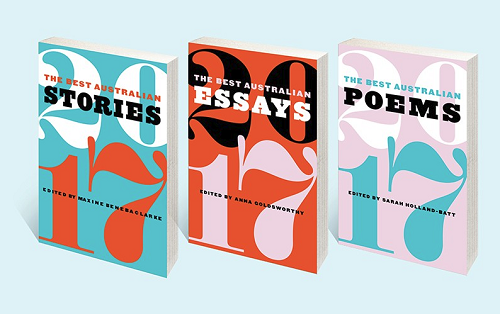
Rating: 4 out of 5 stars
The Best Australian Stories 2017
Edited by Maxine Beneba Clarke
Paperback, 240pp
ISBN: 9781863959612
Black Inc.
